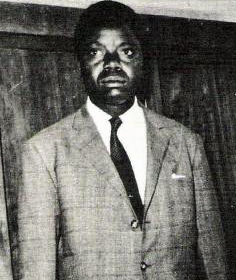Congo Crisis
The Congo Crisis was a period of political upheaval and conflict in the Republic of the Congo (Léopoldville) between 1960 and 1965. It began almost immediately after the country gained independence from Belgium and ended with the rise to power of Joseph-Désiré Mobutu. The crisis was characterized by a series of civil wars, secessionist movements, and international interventions.
Background[edit | edit source]
The Congo Crisis began on June 30, 1960, when the Republic of the Congo (Léopoldville) declared its independence from Belgium. The newly independent nation was plagued by political instability, ethnic tensions, and economic challenges. The first Prime Minister, Patrice Lumumba, and President, Joseph Kasa-Vubu, struggled to maintain control over the vast and diverse country.
Key Events[edit | edit source]
Secession of Katanga[edit | edit source]
One of the first major events of the Congo Crisis was the secession of the mineral-rich province of Katanga under the leadership of Moïse Tshombe. Katanga declared independence on July 11, 1960, with the support of Belgian mining interests and mercenaries. The secession of Katanga significantly weakened the central government and led to a prolonged conflict.
United Nations Intervention[edit | edit source]
In response to the crisis, the United Nations deployed a peacekeeping force known as ONUC to restore order and support the central government. The UN forces faced significant challenges, including opposition from secessionist forces and internal divisions within the Congolese government.
Assassination of Patrice Lumumba[edit | edit source]
The political situation further deteriorated with the assassination of Patrice Lumumba in January 1961. Lumumba's death was a turning point in the crisis, leading to increased international involvement and further destabilization.
Rise of Mobutu[edit | edit source]
The crisis eventually culminated in the rise of Joseph-Désiré Mobutu, who seized power in a coup d'état in November 1965. Mobutu established a one-party state and ruled the country, which he renamed Zaire, until 1997.
Impact[edit | edit source]
The Congo Crisis had a profound impact on the region and the world. It highlighted the challenges of decolonization, the complexities of Cold War politics, and the difficulties of nation-building in post-colonial Africa. The crisis also set the stage for future conflicts in the region, including the First Congo War and the Second Congo War.
Related Pages[edit | edit source]
- Republic of the Congo (Léopoldville)
- Patrice Lumumba
- Joseph Kasa-Vubu
- Moïse Tshombe
- United Nations Operation in the Congo
- Joseph-Désiré Mobutu
- Katanga Province
- First Congo War
- Second Congo War
Categories[edit | edit source]
Search WikiMD
Ad.Tired of being Overweight? Try W8MD's physician weight loss program.
Semaglutide (Ozempic / Wegovy and Tirzepatide (Mounjaro / Zepbound) available.
Advertise on WikiMD
|
WikiMD's Wellness Encyclopedia |
| Let Food Be Thy Medicine Medicine Thy Food - Hippocrates |
Translate this page: - East Asian
中文,
日本,
한국어,
South Asian
हिन्दी,
தமிழ்,
తెలుగు,
Urdu,
ಕನ್ನಡ,
Southeast Asian
Indonesian,
Vietnamese,
Thai,
မြန်မာဘာသာ,
বাংলা
European
español,
Deutsch,
français,
Greek,
português do Brasil,
polski,
română,
русский,
Nederlands,
norsk,
svenska,
suomi,
Italian
Middle Eastern & African
عربى,
Turkish,
Persian,
Hebrew,
Afrikaans,
isiZulu,
Kiswahili,
Other
Bulgarian,
Hungarian,
Czech,
Swedish,
മലയാളം,
मराठी,
ਪੰਜਾਬੀ,
ગુજરાતી,
Portuguese,
Ukrainian
Medical Disclaimer: WikiMD is not a substitute for professional medical advice. The information on WikiMD is provided as an information resource only, may be incorrect, outdated or misleading, and is not to be used or relied on for any diagnostic or treatment purposes. Please consult your health care provider before making any healthcare decisions or for guidance about a specific medical condition. WikiMD expressly disclaims responsibility, and shall have no liability, for any damages, loss, injury, or liability whatsoever suffered as a result of your reliance on the information contained in this site. By visiting this site you agree to the foregoing terms and conditions, which may from time to time be changed or supplemented by WikiMD. If you do not agree to the foregoing terms and conditions, you should not enter or use this site. See full disclaimer.
Credits:Most images are courtesy of Wikimedia commons, and templates, categories Wikipedia, licensed under CC BY SA or similar.
Contributors: Prab R. Tumpati, MD







